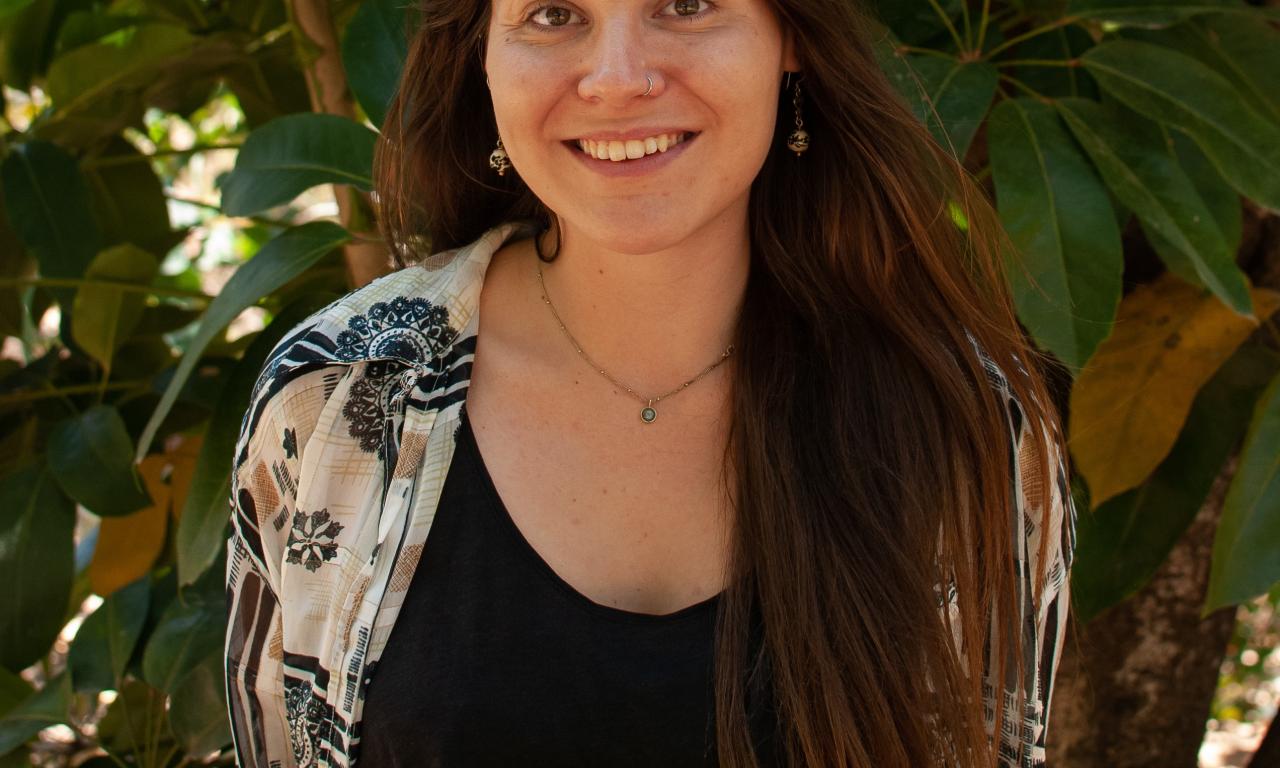
Bethany Smith is a junior researcher working remotely from Australia for the WorldFish Myanmar team. She started working with WorldFish initially on a 3-month student internship funded by the ACIAR agribusiness scholarship supported by WorldFish and the Livelihoods Lab. This opportunity acted as the final component of her Masters of Professional Science majoring in Marine Biology from James Cook University. Before the ACIAR agribusiness scholarship, she was awarded The Royal Society of Biology Award for best performing graduate in a Biological Sciences degree, awarded for her BSc in Biological Sciences at the University of Brighton. She is currently researching innovative tools and frameworks within aquatic food systems related to sustainability, food, and nutritional security in the face of climate and non-climate hazards.
What are you currently working on for WorldFish?
Over the course of 2020, I have been involved in several projects that focus on developing integrated aquatic food systems and agricultural pathways within Myanmar, supporting food and nutritional security, incomes, and employment. This has centered around developing innovative geospatial decision support tools that can help improve integrated food systems' productivity and profitability, specifically rice-fish. Additionally, the team has just completed a climate-based risk assessment for the fisheries and aquaculture sector. This aims to support the development of targeted mitigation strategies to reduce the sector's potential to be impacted by climate change.
What’s the most exciting thing about your research area?
The opportunity to tailor technological and theoretical advancements to innovatively support the generation of sustainable practices. This is accompanied by the chance to support these technologies' integration and uptake through capacity building initiatives that can meet and adapt to the local context.
What’s the most memorable situation you’ve found yourself involved in your research area?
This year has been a memorable one for many reasons. COVID-19 has certainly impacted my work, given the nature of scientific research being closely connected to collecting data in the field. Regardless of the global disruption we have faced, I have been inspired by how the Myanmar team has worked together, across four different countries and time zones, to adapt and overcome any barriers COVID-19 placed on our research activities. Having recently completed a project that began (and was successfully completed) during the lockdown, it has been inspiring to work within a team that communicated and worked together so efficiently whilst showing considerable amounts of adaptation and flexibility regarding the research process. This experience is something that I will take with me throughout my career, reminding me of the importance of great collaboration and teamwork.
What’s your favorite part of the research process, and why?
I find it difficult to select one part of the research process that I enjoy most, as each aspect has a particular component that motivates me. I value the significance of (and the complementarity between) each part of the research process and the role each part plays towards the completion of a project. I am particularly passionate about ensuring results are presented in a manner that readily lends itself to the broad application and uptake of outputs, whether this is in the form of innovative digital tools, capacity building activities, or data visualization.
What innovation do you think has the greatest potential to change your research area in the country you are working in?
The WorldFish Myanmar team is presently developing a decision support tool that will bring together biophysical, social, and ecological data layers to support the advancement of integrated aquatic food systems. This includes implementing technical capacity building initiatives that will focus on the generation of high-quality, long-term datasets across multiple sectors and scales. The generation of this database (and the corresponding tool) could be transformational within the fisheries and agricultural sector, enabling research outputs to provide a more accurate and robust representation of food systems' present and future status within Myanmar.
What piece of scientific research have you conducted in the past 12 months are you most proud of and why?
The climate-based risk assessment of the fisheries and aquaculture sector was the first of its kind within Myanmar. It revealed some key findings that will support strategic investments and policy dialogues to increase resilience within the sector. The assessment methodology was deliberately developed to easily be replicated at the national level as a management tool. Additionally, the methodology allowed for the identification of data-poor areas. If addressed by government departments, this could facilitate the extension of the data collection process and the application of the risk assessment at a broader scale, supporting the adaptation of the fisheries and aquaculture sector to effectively tackle the potential impacts of climate change.
What do you hope your research achieves?
I hope that my research can contribute to developing more integrated practices that emphasize integrating ecological and social factors into projects whilst considering a system's interactions across multiple scales. This will be reflected in my upcoming Ph.D. (a collaboration between the Livelihoods Lab at James Cook University and WorldFish), which focuses on developing a framework to improve resilience within sustainable livelihood diversification strategies.
What would your dream role be in your research area?
I would love to take on a position where I can be directly involved in the research process whilst ensuring outputs have a real-world impact. For example, I assist in applying, adapting, and implementing the tools that I have mentioned above at various scales, ranging from small-scale communities to the national level.